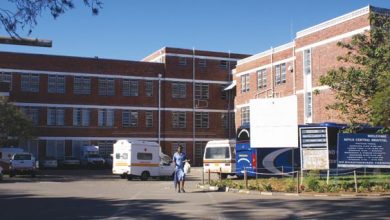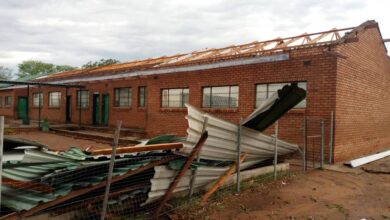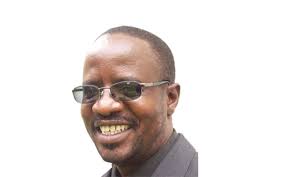Byo residents fume over Khami Dam water use

Bulawayo residents have taken the Bulawayo City Council (BCC) to task over its controversial decision to purify the heavily polluted Khami Dam water for drinking.
The residents made known their feelings on the issue at a consultation meeting held at the Large City Hall on Wednesday.
Khami Dam was built in 1928 but decommissioned in 1988 and BCC working with an estimation of US$26 million says the water can be purified to provide the water-stressed city with an additional 12 megalitres per day.
Residents said if council had to recycle Khami Dam water, it should first provide samples of the purified water so they could be convinced.
Bulawayo United Residents Association (BURA) chairperson, Winos Dube, queried if BCC had the capacity to recycle the water and challenged the authority to release the names of suburbs that would receive the water.
“Will the treated Khami water find its way to suburbs such as Burnside or it will be directed to western suburbs?” he asked.
A social activist from Bulawayo Water Action, Khumbulani Maphosa, questioned whether BCC had exhausted all other sources before settling on Khami Dam water and said the council was losing water through unattended leaks and pipe bursts.
He also proposed that BCC should inform residents to reduce size of cisterns in their households, as they used up to 10 litres of treated water to flush their waste down the toilet.
Director of Engineering Services, Engineer Simela Dube, said residents must provide options on what to do with Khami water once recycled.
He said for a start, the water can be used by industry, sold to the Zimbabwe Power Company which used 2 to 3 megalitres of treated water per day or once treated, could be blended with the city’s criterion water works to serve whole city.
“At the end of the day, we must decide what to do because the city needs additional water sources to augment supply,” Dube noted.
Dube explained that recurrent droughts from 2012-2013, 2016, 2018, 2019 and 2020 had affected the city’s water supply while projections showed the situation was worsening.
“In 2012-2013 we had 72 hours of water shedding per week, same as in 2016. In 2018 there was no shedding after the rains but in 2019 we reintroduced the shedding to 48 hours per week and in 2020, we are now at 144 hours of water shedding a week,” he said.
Dube projected that another dam would soon be decommissioned having already struck three dams off- Upper Ncema decommissioned in June 2019, Umzwingwane in November 2019 and Lower Ncema in May 2020.
He said taking on the Khami project would see the council claiming control, unlike government run projects facilitated by the Zimbabwe National Water Authority (ZINWA).
“The several projects that we are talking about today, are the same ones we have discussed with the government since 2103, but nothing has happened because we have no control over them,” he said.
The city’s engineer noted that the idea to recycle Khami Water was mooted in 1996, the previous city engineer George Mlilo (now the permanent secretary in the Ministry of Local Government) was engaged in such talks.
He added that recycling Khami Dam would not be a new venture, as other countries such as Namibia and South Africa had done so including Western countries in light of global water shortages.
“In Namibia, the treatment started in 1968 and in South Africa, we went to Durban, where a council team visited the Ballito Waste Water Recycling System at KwaZulu Natal,” he said.
Interestingly, Dube said according to the World Health Organisation (WHO) standards Khami water would pass as suitable raw water.
“The water at Khami is 100 percent stagnant and algae formed turning into a green colour but this can be treated. Our Zimbabwean standards are better than WHO and with technologies available now, we can treat this water well. Others have suggested that we not consult but go ahead and treat it but as a consultative council we have to discuss this with you first,” he said.





